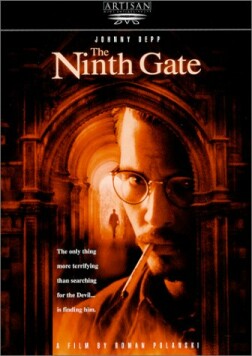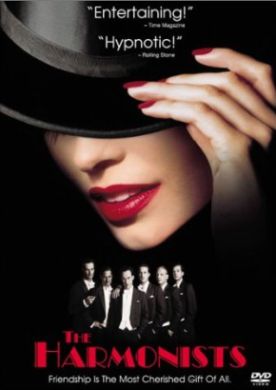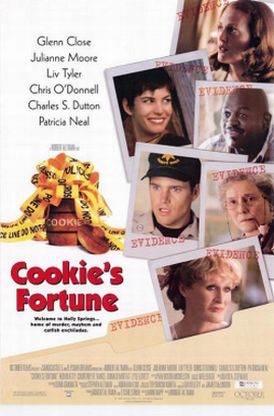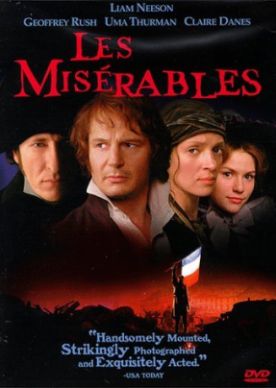Rififi
The re-release of Jules Dassin’s Rififi (French title: Du Rififi Chez les Hommes) of 1954 comes opportunely to remind the Hollywood epigoni known to these pages as the Taranteenies of what film noir really was. The chief difference between it and that which too often, and too erroneously, goes under the same name today, is the moral vision of the original. This is not to say that original film noir is what some critics, mistakenly I think, have taken to describing as “conservative movies.” Not for nothing did old-fashioned Marxists (of which Dassin, who left this country during Hollywood’s brief period of anti-communist fervor, is likely to have been one) find an artistic affinity for film noir. For its informing moral vision is of a malign Providence — the very opposite of that which was so often and so complacently said to have brought eager “capitalists” to these American shores. This deity’s implacable hostility to the aspirations of the little guy qua criminal (that is to say, a rebel against bourgeois oppression) could easily be conflated with the Marxist diagnosis of what it was that those Christian strivers had really been worshiping, namely the “system” which made them rich.
But there is if not a conservative at least a non-Marxist reading of the same basic story, which always ends with the criminal enterprise’s failure by some quirk of chance and circumstance, or contradiction in the principals’ aspirations, that suggests the hand of cruel fate. Or perhaps something more like Hardy’s sardonic “President of the Immortals,” who seems rather to enjoy thwarting and killing poor mortals with ideas above their station. The code of conduct to which the old-time Hollywood studios subscribed required that crime, in the movies at any rate, should not pay, which was as welcome a restriction to the Communists as to the Christians, since it meant that the audience would come away from the film with a healthy respect for those powers — whether conceived of as benevolent or malevolent — at work in the world to ensure that crime does not pay.
Even cynicism in these special circumstances could look attractive, since it involved a kind of heroic refusal to bow the neck before inevitable defeat. Latter-day noir, which tends to show the cynical thieves as being quite as successful and happy in their cynicism as in their thievery, is simply a moral vacancy, a form (like so many other cinematic genres of today) of wish-fulfilment for the emotionally and imaginatively undeveloped. A popular culture like ours, in which morality is thought to be self-determined, is scarcely capable of producing a mature work of art, since maturity only comes with the recognition of moral limitation.
All this by way of prelude to a film whose sense of moral limitation now looks almost comically exaggerated. The Bogartian Jean Servais stars as Tony le Stéphanois, a hard-case ex-con who can’t even get credit in a neighborhood poker game. “Only cash counts here,” he is told with the casual but pitiless implication that the same is true in life. His best friend, Jo the Swede (Carl Möhner), the man for whom he took the rap that sent him to prison, is married to respectable Louise (Janine Darcey) and the father of young Tonio (Dominique Maurin), Tony’s godson, yet his sense of obligation to Tony makes him return to the life of crime. He thinks he can make it up to Tony by involving him in a sweet jewelry-store job with his friend Mario (Robert Manuel) and an expert safecracker that Mario knows from back home called César the Milanese (Dassin himself).
The central and justly famous episode in the film is the full half hour of the elaborately planned break-in which, without a word of dialogue or a scrap of music, keeps our attention riveted to every move as it unfolds before us. It is a filmmaking triumph that was much copied (most recently by Brian DePalma in Mission Impossible) and that Dassin liked so much he copied it himself in Topkapi. But the skill of the filming, echoing the skill of the break-in, only set up the doomed conspiracy by adding to the poignancy of its inevitable failure. All we are left with is the honor of the streets which sets up the heist to begin with and then teaches its perpetrators how to behave when they become the victims of the fortune that once smiled on them.
Tony is of course the principal exemplar of this honor-among-thieves, but everyone around him seems to catch it like a disease. Tony is still sweet on Mado (Marie Sabouret), but since she has betrayed him with the crooked nightclub owner, Pierre Grutter (Marcel Lupovici) he has no choice but to beat her up. But Mado, in spite of Tony’s cruelty, still loves him, and rather than let Grutter see the marks of Tony’s beating on her, which will make him go after Tony, runs away to hide for a few days. “He just learned some women can have guts,” says one of his comrades admiringly. Later, all of them are likewise called upon to show their guts in sticking to the code even at the cost of their lives.
So much noble self-renunciation for honor now looks almost comically grotesque. One of my favorite scenes comes as César le Milanais, having inadvertently betrayed the gang’s activities to the Grutter mob, is confronted by Tony. “I liked you. I really liked you, Macaroni,” says the latter as he draws his revolver. “But you know the rules.”
“Ah, the rules,” says César fatalistically just before Tony shoots him. Maybe those rules never really existed, or maybe they were exaggerated to heighten the melodramatic effect. But without them, or something like them, there can be no heroism. Old-fashioned film noir instinctively grasped, as our latter-day self-indulgence has yet to do, that there’s nothing so romantic as rules.
Discover more from James Bowman
Subscribe to get the latest posts to your email.








